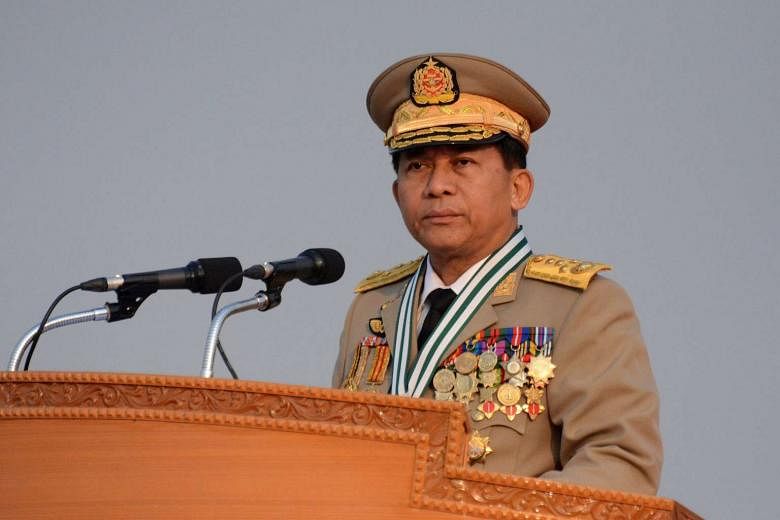YANGON (AFP) - Myanmar's army chief defended a military crackdown in Rakhine State on Monday (March 27) after the United Nations (UN) pledged to probe claims security forces carried out a campaign of killing and torture against Rohingya Muslims there.
Almost 75,000 people from the persecuted minority have escaped to Bangladesh after the military launched operations in the north of the restive state to find Rohingya militants who raided police border posts in October.
UN investigators believe security forces may have committed crimes against humanity. Last week the UN Human Rights Council agreed to dispatch an independent international fact-finding mission, with a view to "ensuring full accountability for perpetrators and justice for victims".
Myanmar has long faced criticism for its treatment of the more than one million Rohingya who live in Rakhine State, who are rejected as illegal immigrants from Bangladesh or "Bengalis" despite many living there for generations.
Speaking to crowds assembled in the capital for armed forces day, army chief Min Aung Hlaing on Monday defended the military campaign.
"The Bengalis in Rakhine State are not the Myanmar nationalities but the immigrants," he said, according to an official translation. "The terrorist attacks which took place in October 2016 resulted in the political interferences."
Myanmar's civilian government led by Aung San Suu Kyi has meanwhile rebuffed the UN probe, saying any international fact-finding mission "would do more to inflame, rather than resolve, the issues at this time".
The country's powerful military until recently ruled Myanmar with an iron fist and built up a notorious reputation for rights abuses, especially when conducting operations against restive ethnic insurgents.
Almost all Rohingya are denied citizenship and forced to live in apartheid-like conditions, while tens of thousands of them have been confined to dire camps since violence drove them from their homes in 2012.
This month a commission led by former UN chief Kofi Annan to resolve issues in Rakhine recommended the camps be closed and said restrictions on freedom of movement should be lifted.

